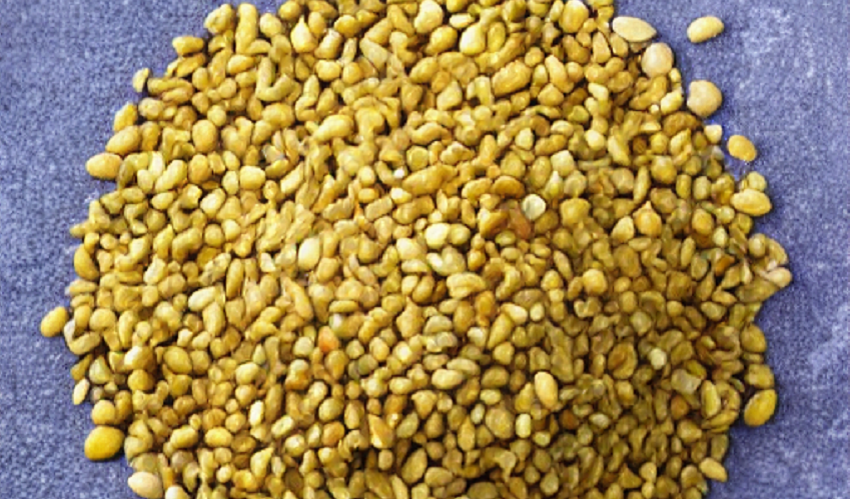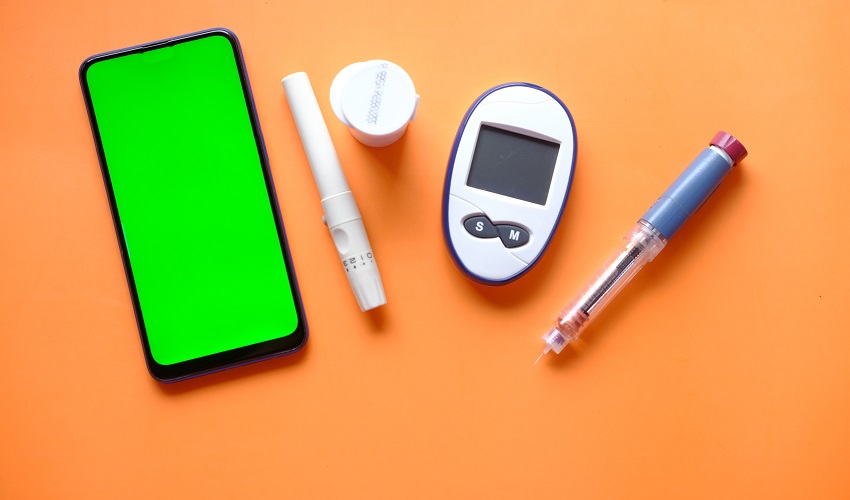What is protein?
Protein is an essential nutrient that plays a crucial role in the body. It is made up of amino acids, which are the building blocks of life. Protein is important for growth and development, as well as repairing tissues and cells. It also helps to regulate hormones and enzymes, and is involved in the production of antibodies to fight off infections. In the context of a diabetic diet, protein can help to stabilize blood sugar levels and promote feelings of fullness, which can be beneficial for managing diabetes. It is important to include sources of protein in each meal to ensure a well-balanced diet for diabetics.
Importance of protein for diabetics
Protein plays a crucial role in the diet of diabetics. It helps in maintaining blood sugar levels and managing insulin resistance. Protein also helps in repairing and building tissues, which is important for diabetics as they may have slower wound healing. Additionally, protein can help control appetite and promote weight loss, which is beneficial for managing diabetes. Including sources of protein, such as lean meats, fish, eggs, dairy products, and plant-based proteins, in the diet can provide the necessary nutrients for diabetics to maintain a healthy lifestyle.
Sources of protein in roti
Roti, also known as chapati or Indian bread, is a staple food in many South Asian countries. It is made from whole wheat flour and is a good source of protein for diabetics. The main sources of protein in roti are wheat flour and lentils. Wheat flour contains gluten, which is a protein that helps in the formation of the dough. Lentils, on the other hand, are legumes that are rich in protein and provide a complete source of amino acids. Including roti in the diet can help diabetics meet their protein requirements and maintain stable blood sugar levels.
Effects of Protein on Blood Sugar Levels
Protein’s impact on blood sugar
Protein’s impact on blood sugar: Protein has a minimal impact on blood sugar levels compared to carbohydrates. When consumed, protein is broken down into amino acids, which are then used by the body for various functions. Unlike carbohydrates, protein does not directly raise blood sugar levels. However, it is important to note that consuming excessive amounts of protein can lead to a process called gluconeogenesis, where the body converts protein into glucose. This can potentially increase blood sugar levels in individuals with diabetes. Therefore, it is recommended to consume protein in moderation and as part of a balanced diet for optimal blood sugar control.
How protein slows down digestion
Protein plays a crucial role in slowing down digestion. When we consume protein, it takes longer for our bodies to break it down compared to carbohydrates and fats. This slower digestion process helps to regulate blood sugar levels, making it especially beneficial for diabetics. By slowing down the release of glucose into the bloodstream, protein can prevent rapid spikes in blood sugar and promote more stable energy levels throughout the day. Incorporating protein-rich foods, such as roti, into a diabetic diet can therefore be an effective strategy for managing blood sugar levels and maintaining overall health.
Protein’s role in preventing blood sugar spikes
Protein plays a crucial role in preventing blood sugar spikes in individuals with diabetes. When consumed, protein is broken down into amino acids, which are absorbed into the bloodstream at a slower rate compared to carbohydrates. This slower absorption helps to regulate blood sugar levels and prevent sudden spikes. Additionally, protein can promote feelings of fullness and satiety, which can aid in weight management. Including protein-rich foods, such as lean meats, fish, eggs, and legumes, in the diet can be beneficial for individuals with diabetes in maintaining stable blood sugar levels.
Protein Quality in Roti
Different types of protein in roti
Roti, also known as chapati, is a staple food in many South Asian countries. It is made from whole wheat flour and is a good source of protein for diabetics. There are different types of protein present in roti, including gluten, albumin, and globulin. Gluten is a type of protein that gives roti its elasticity and helps it hold its shape. Albumin and globulin are plant-based proteins that provide essential amino acids for the body. These proteins help in maintaining muscle mass, repairing tissues, and supporting overall health. Including roti in the diet of diabetics can be a beneficial way to incorporate protein into their meals.
Protein content in whole wheat roti
Protein content in whole wheat roti is an important factor to consider for diabetics. Whole wheat roti is a good source of protein, providing essential amino acids that are necessary for the body’s growth and repair. Protein helps in maintaining blood sugar levels and promotes satiety, making it a suitable choice for diabetics. Including whole wheat roti in the diet can help diabetics meet their protein requirements and manage their blood sugar levels effectively.
Comparing protein quality in different types of roti
Protein quality can vary in different types of roti. Whole wheat roti, also known as chapati, is a popular choice among diabetics due to its high fiber content. It contains a moderate amount of protein, making it a good option for those looking to increase their protein intake. On the other hand, refined flour roti, such as naan or paratha, may have lower protein content and higher glycemic index, which can lead to a rapid increase in blood sugar levels. Therefore, it is important for diabetics to choose their roti wisely and opt for whole wheat varieties to ensure a better protein quality and glycemic control.
Protein and Satiety
How protein promotes satiety
Protein plays a crucial role in promoting satiety, or the feeling of fullness. When consumed, protein triggers the release of hormones that signal to the brain that we have had enough to eat. This helps to reduce cravings and prevent overeating, which is especially important for individuals with diabetes. Additionally, protein takes longer to digest compared to carbohydrates, providing a longer-lasting source of energy and helping to stabilize blood sugar levels. Including protein-rich foods, such as lean meats, eggs, and legumes, in a diabetic diet can help regulate appetite and support overall blood sugar control.
Protein’s effect on appetite
Protein’s effect on appetite: Protein plays a crucial role in regulating appetite. It has been found that consuming a high-protein diet can help reduce hunger and increase feelings of fullness. This is because protein takes longer to digest than carbohydrates and fats, leading to a slower release of energy. Additionally, protein stimulates the release of hormones that signal fullness to the brain, further suppressing appetite. Including protein in your diet can therefore be beneficial for managing appetite and promoting weight loss.
Protein’s role in weight management for diabetics
Protein plays a crucial role in weight management for diabetics. It helps in promoting satiety and reducing appetite, which can be beneficial for controlling calorie intake and managing weight. Additionally, protein has a higher thermic effect compared to carbohydrates and fats, meaning that the body burns more calories during the digestion and absorption process of protein. This can contribute to increased calorie expenditure and potentially aid in weight loss. Furthermore, protein helps in preserving lean muscle mass, which is important for overall health and metabolic function. Therefore, incorporating sufficient protein in the diet of diabetics can be an effective strategy for weight management.
Protein and Muscle Health
Importance of protein for muscle health
Protein plays a crucial role in maintaining muscle health, especially for individuals with diabetes. It is essential for repairing and building muscle tissue, which can help improve overall strength and mobility. Additionally, protein helps regulate blood sugar levels, making it an important nutrient for managing diabetes. Incorporating protein-rich foods, such as lean meats, poultry, fish, eggs, and plant-based sources like beans and lentils, into the diet can provide the necessary amino acids needed for muscle repair and growth. It is important for diabetics to consult with a healthcare professional or registered dietitian to determine their specific protein needs and create a balanced meal plan that supports their overall health and diabetes management.
Protein’s role in muscle repair and growth
When we exercise or engage in physical activities, our muscles undergo wear and tear. Protein helps in repairing and rebuilding these damaged muscles, allowing them to grow stronger and bigger. It provides the necessary building blocks for muscle tissue synthesis and helps in the production of new muscle fibers. For diabetics, maintaining muscle health is important as it can improve insulin sensitivity and glucose metabolism. Including protein-rich foods like roti in their diet can help diabetics meet their protein requirements and support muscle repair and growth.
Recommended protein intake for diabetics
Diabetics need to be mindful of their protein intake to maintain stable blood sugar levels. The recommended protein intake for diabetics varies depending on factors such as age, sex, activity level, and overall health. Generally, it is recommended that diabetics consume about 0.8 to 1 gram of protein per kilogram of body weight. This can be achieved by including protein-rich foods such as lean meats, fish, poultry, eggs, dairy products, legumes, and tofu in their diet. It is important for diabetics to consult with a healthcare professional or a registered dietitian to determine their specific protein needs and to ensure a well-balanced diet.
Summary of key points
The article ‘Protein in One Roti: Essential Facts for Diabetics’ provides valuable information for individuals with diabetes. In the section titled ‘Summary of key points’, the article highlights important facts about protein content in one roti. It emphasizes the significance of protein in the diet of diabetics and provides essential information for managing blood sugar levels. This article serves as a helpful resource for individuals seeking to understand the role of protein in their diet and make informed choices for their health.
Importance of including protein in roti for diabetics
Including protein in roti is crucial for diabetics as it helps in managing blood sugar levels. Protein takes longer to digest compared to carbohydrates, which means it provides a slow and steady release of glucose into the bloodstream. This helps prevent sudden spikes in blood sugar levels, which can be harmful for diabetics. Additionally, protein helps in building and repairing tissues, promoting satiety, and maintaining muscle mass. Including protein in roti can also help in balancing the overall nutrient profile of the meal, making it more wholesome and nutritious for diabetics.
Final thoughts on protein’s role in managing diabetes
In conclusion, protein plays a crucial role in managing diabetes. It helps in regulating blood sugar levels, promoting satiety, and maintaining muscle mass. However, it is important to choose lean sources of protein and consume it in moderation. Too much protein intake can lead to weight gain and may have adverse effects on kidney function. Therefore, it is recommended to consult a healthcare professional or a registered dietitian for personalized advice on protein consumption for individuals with diabetes.




